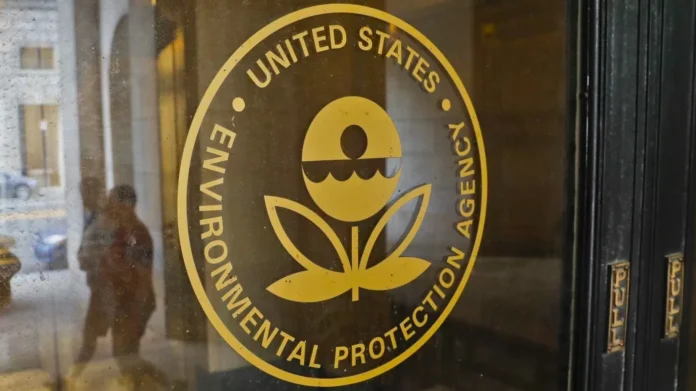The Environmental Protection Agency (EPA) has recently made a decision that has sparked controversy among environmentalists. The agency has approved a pilot project that would allow a company, Mosaic Fertilizer, LLC, to build a small road made out of a radioactive fertilizer byproduct, called phosphogypsum. This decision has drawn ire from environmentalists who are concerned about the potential risks and consequences of using this material in such a way.
The Biden administration’s approval of this project has caused quite a stir in the environmental community. Many are questioning the reasoning behind this decision and the potential impact it could have on the environment and public health. However, it is important to understand the facts and the careful considerations that have been taken into account before jumping to conclusions.
Phosphogypsum is a byproduct of the fertilizer manufacturing process. It is a naturally occurring substance that contains low levels of radioactivity. The EPA has deemed it safe for use in construction, as long as it is properly managed and controlled. Mosaic Fertilizer, LLC has been using phosphogypsum for decades and has a proven track record of responsible and safe handling of this material.
The pilot project in question involves the construction of a small road on Mosaic’s property in New Wales, Florida. This road will be made entirely out of phosphogypsum, eliminating the need for traditional paving materials, such as asphalt or concrete. This will not only reduce the company’s environmental footprint but also save resources and reduce costs.
The use of phosphogypsum in road construction is not a novel idea. In fact, it has been used in several countries, including the United States, for many years. The EPA has strict regulations in place to ensure the safe use of this material in construction projects. Mosaic has worked closely with the agency to ensure that all necessary precautions are taken to protect the environment and public health.
One of the main concerns raised by environmentalists is the potential for radioactive material to leach into the surrounding soil and water sources. However, Mosaic has assured that they will be using a specially designed liner underneath the road to prevent any leaching. In addition, the company will also monitor the area regularly to ensure that there is no impact on the environment.
Moreover, the use of phosphogypsum in road construction has several environmental benefits. As mentioned earlier, it eliminates the need for traditional paving materials, which are harmful to the environment. The production of asphalt and concrete releases significant amounts of greenhouse gases and consumes large amounts of energy. By using phosphogypsum, Mosaic will be reducing its carbon footprint and promoting sustainable practices.
Furthermore, the construction of this road will also have a positive impact on the local community. It will create jobs and boost the economy in the area. The road will also provide a safer and more efficient means of transportation for Mosaic’s employees and the surrounding community.
The EPA’s approval of this pilot project is a step in the right direction towards finding sustainable solutions for our infrastructure needs. It is a testament to the agency’s commitment to promoting environmentally responsible practices. Mosaic Fertilizer, LLC has shown that the use of phosphogypsum in road construction is not only safe but also beneficial for the environment and the community.
In conclusion, the EPA’s approval of Mosaic’s pilot project to build a road out of phosphogypsum is a positive move towards finding innovative and sustainable solutions. The company has a proven track record of responsible handling of this material, and the EPA has stringent regulations in place to ensure its safe use. The use of phosphogypsum in road construction has several environmental benefits and will also have a positive impact on the local community. Let us embrace this project and support the efforts towards a greener and more sustainable future.

